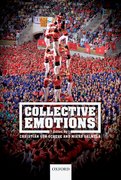Plausible fictions and irrational coherence
By Joseph Harris
One of the most intriguing developments in recent psychology, I feel, has been the recognition of the role played by irrationality in human thought. Recent works by Richard Wiseman, Dan Ariely, Daniel Kahneman, and others have highlighted the irrationality that can inform and shape our judgements, decision-making, and thought more generally. But, as the title of Ariely’s book Predictably Irrational reminds us, our ‘irrationality’ is not necessarily random for all that.










